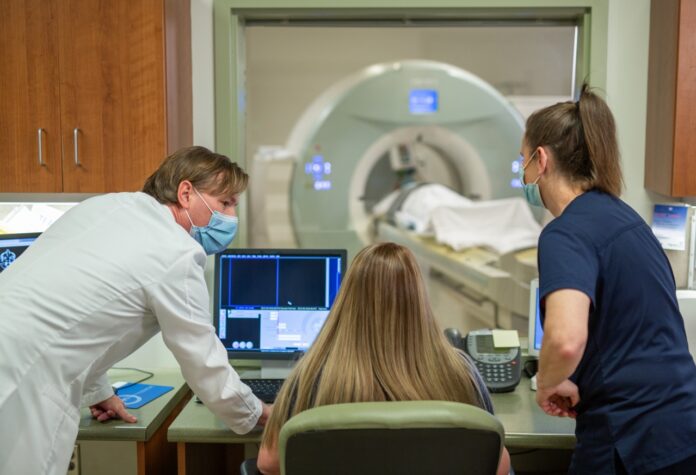Ten million people visit emergency departments in the United States every year for head trauma, according to the National Academies of Sciences, Engineering, and Medicine. However, “Traumatic Brain Injury: A Roadmap for Accelerating Progress found that due to testing limitations, emergency physicians often diagnose “brain injury” incorrectly, resulting in missed follow-up and potentially debilitating symptoms down the road for patients.
While many associate concussions with sports, only 3 to 4 percent of head injuries are in athletes who visit emergency departments. In fact, U.S. adults over the age of 75 have had the highest incidence of traumatic brain injuries (TBIs) since 2013. The rates of geriatric mild TBIs (mTBIs) and subsequent mortality have doubled in the past decade.
A $3.5 million National Institutes of Health (NIH) grant from the National Institute for Neurological Disorders and Stroke (NINDS) has been awarded to Carilion Clinic, Richmond, Virginia-based BRAINBox Solutions, and the University of Pennsylvania to develop a new way to diagnose brain injuries in the elderly. The research occurs in two phases. The first step is enrolling patients and designing a new panel of blood markers and cognitive testing to identify brain injury in all elderly patients, even those with cognitive impairment such as dementia. Phase two will utilize phase one data to determine the tests’ accuracy. When it comes to something as common as concussions, also known as mTBIs, an accurate tool does not currently exist to diagnose the injuries rapidly.
The NIH-funded project is in partnership with BRAINBox but is not directly connected to the HeadSMARTII study in conjunction with BRAINBox. However, HeadSMART II is also investigating if biomarkers in blood can more accurately diagnose and treat mTBI, allowing for rapid diagnosis and prognosis at the bedside using a single device.
“I think the surprising piece when I talk to not only patients, but the community about the type of research we are doing is, most people don’t know that it hasn’t been solved yet,” explained Damon Kuehl, MD, Vice Chair of Emergency Medicine for Carilion Clinic and a co-principal investigator. “Elderly patients requiring acute care visits after evidence of suspected head trauma commonly undergo a computed tomography (CT) scan. Despite most geriatric patients receiving this test, CT is very limited as a diagnostic or predictive tool in those TBI patients.”
BRAINBOX Chief Executive Officer Donna Edmonds stated, “We are grateful for this additional funding, which provides us the opportunity to expand our technology, clinical and scientific evidence to this important population. With this grant, we are one step closer to our goal of developing TBI tests for all patient groups. In addition to the HeadSMART Geriatrics and HeadSMART II trial of the BRAINBox TBI System in adults, we plan to launch the HeadSMART Pediatrics study in the first half of 2022.”
The NIH grant is evidence of the benefits of BRAINBox’s wide-ranging support, including investors around the globe and throughout the Commonwealth of Virginia.
Among dozens of others, Carilion’s commitment to research endeavors has helped generate advances in concussion care.
“BRAINBox began some of its early studies in collaboration with Carilion and the Fralin Biomedical Research Institute at Virginia Tech Carilion, yet another example of the region’s innovation ecosystem and VTC Ventures’ investment strategy at work,” said James Ramey, managing director and investment manager for Middleland Capital’s VTC Ventures. “In 2020, VTC Ventures invested in BRAINBox to help it kick off its groundbreaking HeadSmart II clinical study and expand its pipeline. The research, pre-clinical work, and clinical efforts that BRAINBox accomplished are helping establish the company and the VTC ecosystem as market leaders in mTBI.”
The geriatric TBI study will enroll 300 patients with head trauma and 70 patients as controls. Each patient will be followed for a year, and patients will be enrolled over a 2-year period. The final 100 patients enrolled will be followed until their final year. The study will last 3.5 years.
“I think everybody who hears about it is very excited for the future,” said Dr. Kuehl, “I know I am.”

